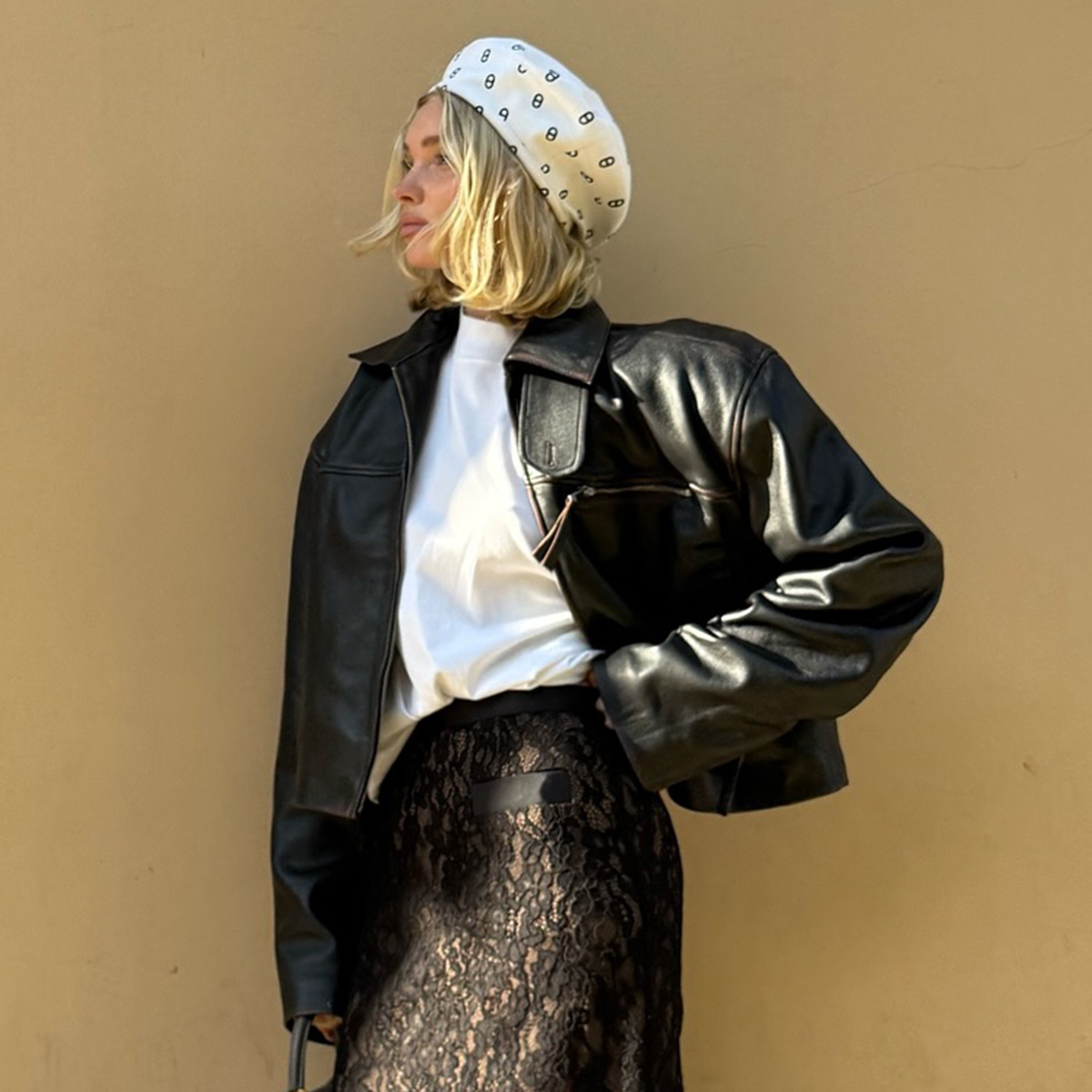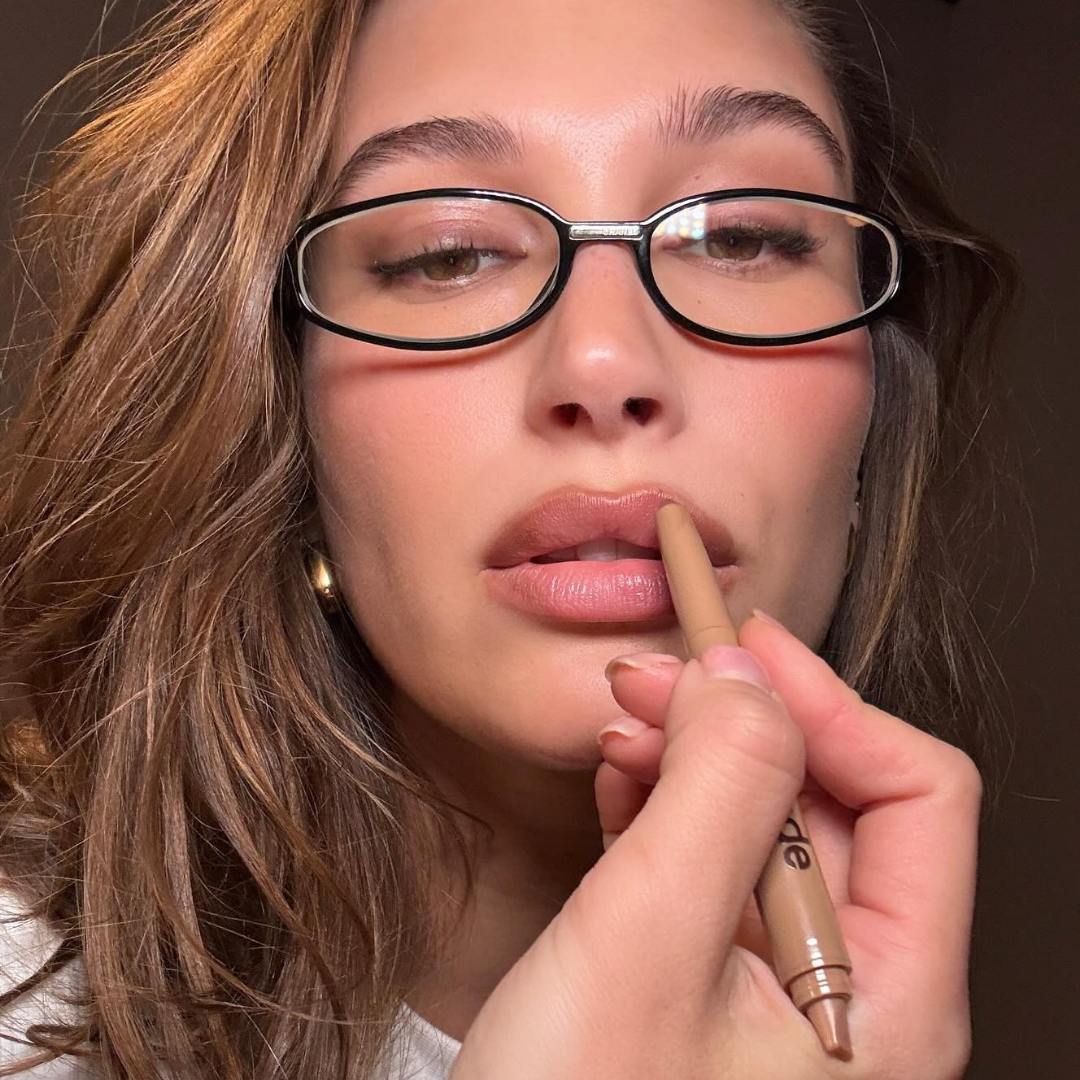I Volunteered as Tribute to Test Whether Acupuncture for Anxiety Really Works
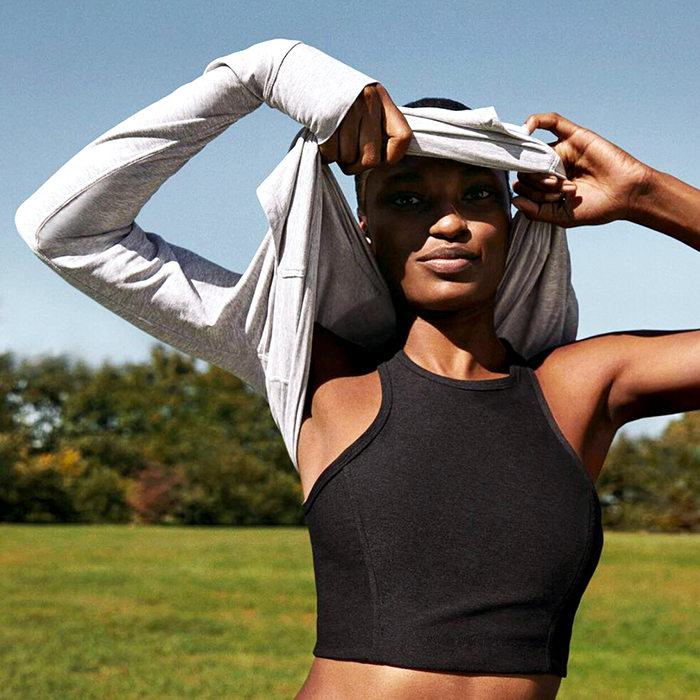
As an ancient form of traditional Chinese medicine (TCM), acupuncture has been linked to health and healing in more than just a physical sense, but an emotional sense as well. In fact, for years, it's been utilized in the treatment plans for almost every kind of health condition you can think of—from certain kinds of cancers to serious cases of depression. Which begs the question: What about acupuncture for anxiety?
Since the relationship between depression and anxiety is not dissimilar to the age-old question of whether the chicken or the egg came first, it would make sense that acupuncture could be a useful tool for managing anxiety as well. And as someone who has struggled with both on and off throughout my life, I was keen to find out (despite my dread of needles).
So setting my fear aside and maintaining a hopeful and open mind, I made an appointment at Amplify Acupuncture with licensed acupuncturist and master of traditional Chinese medicine Yunuen "June" Beristain. Boasting a fresh and modern take on the ancient holistic practice of acupuncture, Amplify is brand new to Santa Monica, has a convenient, no-reservations-required walk-in policy, and offers "restoration and revitalization" in as little as 30 minutes. Needless to say, I was excited and also a bit nervous (because again, needles).
Keep reading to learn how acupuncture can help anxiety and to hear about my personal experience.
Acupuncture & Anxiety
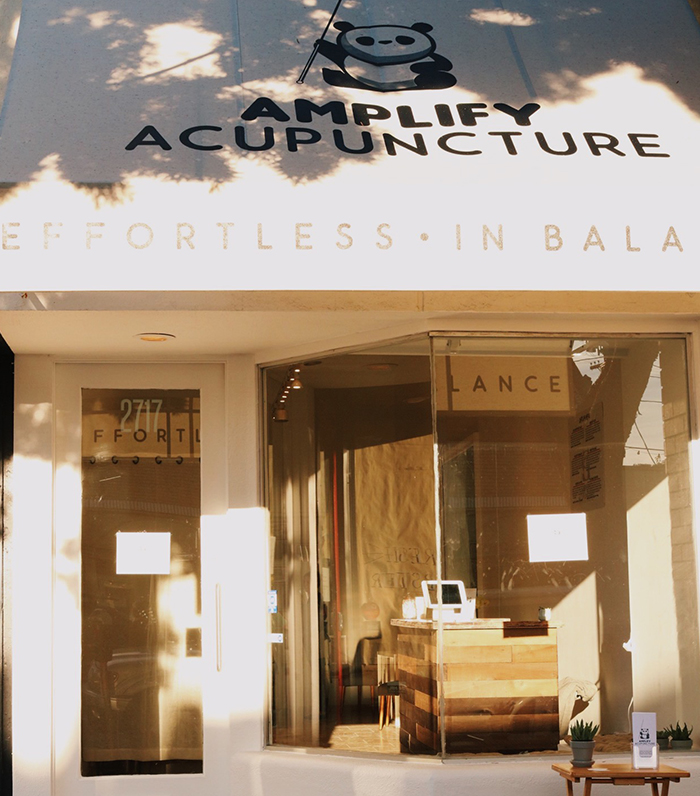
First, let's get the basics. According to Beristain, acupuncture is a method of healing from Traditional Chinese Medicine that works through activating and regulating the body's chi (or energy) by evaluating the pathways by which it moves. In short, "acupuncture causes the natural healing mechanisms in the body to be activated and stimulated," she explains. By inserting ultra-thin needles (on average they're 0.16 millimeters in diameter), into the skin, the body will perceive the treatment as an "attack" of sorts and will either relax or excite in response.
So how does this translate to treatment for anxiety? As Beristain told me, it's very dependent on the individual. "As each person is unique, each treatment for anxiety is unique. Not every anxiety case will have the same TCM diagnosis. It depends on the signs and symptoms and these together will dictate the treatment. After the initial consultation, I'll know how to treat the client's anxiety and which combination of acupuncture points to select."
My Experience
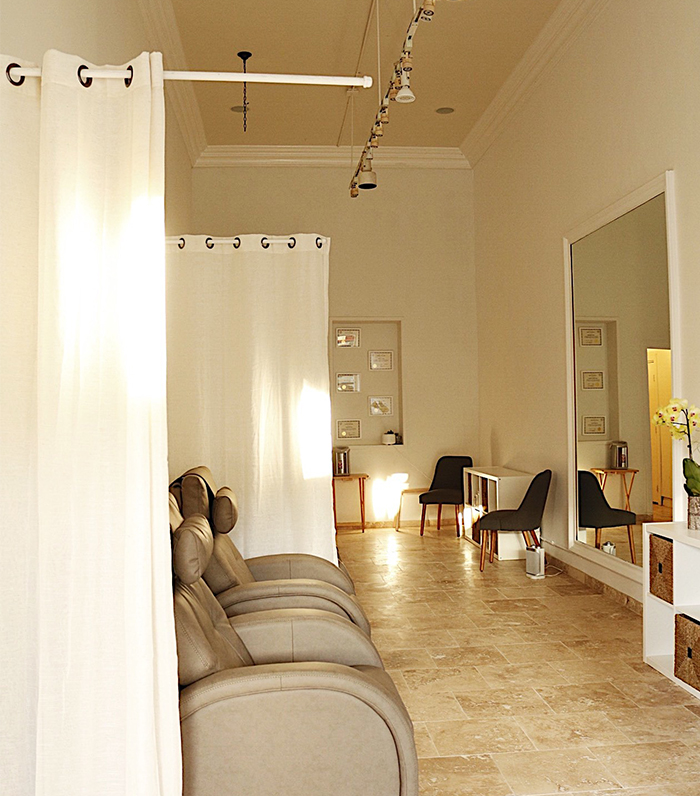
As I mentioned earlier, I was both excited and nervous for my first-ever acupuncture treatment. I was thrilled by Amplify's convenient proximity—it's cozily nestled in the heart of Santa Monica just a stone's throw away from my apartment—and after walking in, I was immediately warmed by the brightly lit space and smiling staff. Beristain greeted me with a warm smile, and I began to relax as she led me into the back room for a quick consultation.
As I had filled out some pretty hefty paperwork online prior to my appointment, she knew exactly where to start and began to ask specific questions about my history with anxiety, past health issues, and even things like diet, menstrual cycles, and personality. Quite quickly, I was struck by her thoughtful, impeccably perceptive demeanor and how deeply she just seemed to care. Beristain is one of those people you feel you can pour your heart out to, and after she had asked some leading (and eventually more probing) questions that hit a few of my tender spots, I pretty much did just that. Interestingly, I already felt comparatively weightless. This bodes well, I thought to myself.
Which, apparently, is kind of the goal. "A lot of patients are very tough on themselves for having anxiety in the first place," Beristain says. "Therefore, you'll get the most out of acupuncture for anxiety if you keep an open mind, as it can really help calm you down. I like to remind clients to not identify with your emotions. By that I mean you are not your emotions; you are not your anxiety, so try not to judge yourself."
After wrapping up the intake, she led me back outside to the lobby and directed me toward a row of plush, pillowy armchairs. I sat down, Beristain leaned me back, and then she began her work. Just one wince and 16 needles later, I lay happily with my eyes closed, listening to cathartic relaxation music, and almost completely unaware I had just been transformed into a human pin cushion (think 16 long, thin needles poking out from the crown of my head, forehead, wrists, and down my legs to my ankles).
This insertion process was the only part of my appointment that I had been dreading (needles + me = numerous instances on a linoleum floor), but I'm happy to report, except for one needle on my wrist, I didn't feel an ounce of pain. Either I didn't feel the insertion at all or it just felt like somebody had ever so lightly tapped me with the tip of a fingernail. And as far as that one moment with my wrist, it wasn't so much a feeling of pain as much as just being completely aware that, okay, yes, something was just stuck into my wrist, and I needed to remain calm. And from there, the rest was easy.
Fast-forward 20 minutes (and one pint-size power nap later), and Beristain was already dislodging the needles. I left Amplify feeling relaxed, refreshed, and completely relieved to not have fainted at the sight of pins in my wrists. (Small victories, people, small victories.)
The Treatment Plan & Some Thoughts
"With you, my approach and strategy after the intake session was to nourish the blood to calm the shen (spirit or mind). Your diagnosis was a blood deficiency, and when there is not enough blood, or the quality of blood is not sufficient, the shen becomes restless," Beristain tells me.
The goal: Strengthen the quality of the blood so that the shen has a home. To do this, she chose specific points on my body to help lessen my issues with anxiety.
Interestingly (and as brought up before), acupuncture is incredibly unique to the individual and Beristain made it very clear that this particular diagnosis was specific to me; someone else with anxiety may require a different treatment using different points on the body. And in case you're wondering how long it takes to reap the benefits (or to notice any type of changes physically or mentally), well, that depends, too.
"It's almost impossible to provide a blanket answer for this kind of question but in general, I recommend patients come in for two sessions per week for a month to six weeks. After that, the patient should start to feel some relief." By this time, Beristain says you can usually re-evaluate the anxiety-focused treatment plan, lessening or increasing the frequency of the sessions.
So is there anyone who shouldn't try acupuncture for anxiety? According to Beristain, not really. "Anyone who wants to try acupuncture should definitely give it a shot. You need to want to do it in order to have the best results." However, finding a credible acupuncturist is key. Here's Beristain's advice: "If you can get a recommendation from someone you know and trust, that's always the best option. However, if you don't know anyone, you can look up someone's licensing record on the state Acupuncture Board website to make sure they have not had any complaints and that they actually have a license."
All in all, I didn't notice any huge changes in my anxiety, but I did leave Amplify feeling calmer and with an itch to come back as soon as possible. Since I only received one treatment, it's to be expected that I wouldn't notice any significant shifts in my anxiety. But I do believe in the potential of the treatment, so I think it's a worthy commitment to make to myself in the name of a happier, healthier, less anxious me.
Next up: five real, noticeable benefits of acupuncture.
This post was originally published at an earlier date and has since been updated.
Disclaimer
This article is provided for informational purposes only and is not intended to be used in the place of advice of your physician or other medical professionals. You should always consult with your doctor or healthcare provider first with any health-related questions.
Erin has been writing a mix of beauty and wellness content for Who What Wear for over five years. Prior to that, she spent two and half years writing for Byrdie. She now calls Santa Monica home but grew up in Minnetonka, Minnesota, and studied writing, rhetoric, and communication at University of Wisconsin, La Crosse. She studied abroad in Galway, Ireland, and spent a summer in L.A. interning with the Byrdie and Who What Wear family. After graduating from UW, she spent one year in San Francisco, where she worked as a writer for Pottery Barn Kids and PBteen before moving down to L.A. to begin her career as a beauty editor.
